Dashnor Kaloçi
Memorie.al publishes several archival documents issued by the Central State Archive in Tirana (fund of the former Central Committee of the ALP), which belong to 1969, where there is an information report of the Deputy Minister of Internal Affairs, Rexhep Kolli, sent to the Secretary of the Central Committee of the ALP, Ramiz Alia, where he informs them, informing them in detail, regarding the arrival in Albania of a group of visitors from Kosovo consisting of 22 people, headed by Rexhep Durakun, the father of the ‘People’s Hero’, who were invited by the Albanian government on the occasion of the holidays of 28 and 29 November. Full report-information of the Director of State Security for the secretary of the Central Committee of the ALP, where he gives detailed information about the 25 members of the large Duraku family and their relatives who came to Albania at the invitation of Official Tirana, starting from the family biography and their moral and political stay in Kosovo and Yugoslavia, where for one of them, Ali Curri, who was the cousin of the ‘Hero of the People’ Bajram Curri, he informs them that Rexhep Duraku told him that the man did not take him, but they gave him and he should be taken care of, because he has a bad attitude and is known as an agent of UDB, as well as Rexhep Duraku, for whom, Qazim Shija, said that he is in the service of UDB!
From 1949, when the communist regime of Enver Hoxha severed relations with the Yugoslavia of Marshal Josif Broz Tito, and until 1991, when that system would be overthrown, for four decades, official Tirana maintained a hostile attitude towards all of them. Albanians from Kosovo, Montenegro and Macedonia, who, in order to escape the persecution of the Titoist regime, were forced to leave their lands and come illegally to Albania, where most of them ended up in internment camps and prisons. Regime, accused of being “UDB agents”. This fact has been known for years, but paradoxically, the paranoia of Enver Hoxha and the communist regimes went so far as to label them as “UDB agents”, as well as all other Albanians (living in the lands). in Kosovo, Montenegro and Macedonia), who came to Albania with official invitations. Even when they were from families known for patriotic traditions, where their ancestors had shed blood for the homeland, such as the family of Bajram Curri, (‘People’s Hero’), or that of Emin Duraku, (‘Hero i Popullit ‘), whose father, Rexhep Duraku, at the head of a group of 25 people, paid a visit to Albania in 1969. For more about this, we know the report-information of the Deputy Minister of Internal Affairs, Rexhep Kolli, sent to Ramiz Alia in 1969.
‘Top secret’ information report of the Deputy Minister of Internal Affairs, Rexhep Kolli, sent to Ramiz Alia, regarding the group of Kosovars who came to Albania with Emin Duraku’s father
THE PEOPLE’S REPUBLIC OF ALBANIA VERY SECRET
MINISTRY OF INTERNAL AFFAIRS
Tirana, on 27.11.1969
DIRECTORY I
No. 2527
Subject: On the group of Kosovars who came with Rexhep Duraku
SECRETARY OF THE CENTRAL COMMITTEE OF THE ALP
FRIEND RAMIZ ALIA
Tirana
On November 19, 1969, Rexhep Duraku came to our country, together with 26 other people from Gjakova, for the wedding of his son in Albania.
From the data so far it results:
- Rexhep Duraku, holds a positive attitude. He is so excited that he was given the opportunity to come. He does not enter into political conversations with other members of the group and implies that he has no desire to speak in their presence. Requires staying until the end of December. He wants to return to Gjakova with his own vehicle, coming to Shkodra to take his son. We are thinking of fulfilling his request.
- Hatixhe Duraku is Rexhepi’s wife. Excited and happy to have come to our country. Very pleased that the boy Përparimi has graduated from the state university of Tirana and that he is very well stabilized in the city of Shkodra.
- Hamdi Duraku, Rexhepi’s brother. There is a mill of his in Gjakova. Lives separated from Rexhepi. Express in conversations the joy of being given the opportunity to come. Before the National Liberation War he lived for a while in Tirana and Durrës. He speaks in the presence of other people who came with him from Gjakova, that at the time when he lived in Albania, there was a big backlog, there was nothing, the man worked all day and did not take a single kilogram of corn. He complains about the life he leads in Yugoslavia and says that even the money he earns from the mill, they get from the many taxes.
- Izet Duraku, son of Rexhepi. It deals with trade. There is a shop in Gjakova where he sells and fixes bicycles. He is quite approachable, he says, adding that the Yugoslavs, although seemingly trusting us, are actually following us and trying to capture us in order to expose us as opponents of the regime. He expressed the opinion that he wanted to bring a gift to comrade Enver, a red flag, with the inscription by the Kosovar patriots of Gjakova. According to him, he will prepare this flag in Gjakova after he returns and when he comes in December to take Rexhepi, he has hidden it in the car. He later changed his mind; said he had also talked to one of the other members of the group, Qazim Jinho, to prepare the flag here and to give it to him. Rexhepi and the other members of the group know nothing about this desire of Izet. For our part, he was told that without Rexhepi’s knowledge, it is not good to prepare this gift.
- Nesret Duraku
- Fatime Duraku
- Mandush Duraku
- Belqizere Duraku, no data comes out. They have a good attitude and are excited about coming to our country.
- Nazmie Duraku, daughter of Rexhepi. There was information that she works in the Secretariat of Internal Affairs of Gjakova as a secretary. Izet, his brother, presents him well and thinks that together with him he will prepare the flag as a gift for Comrade Enver.
- Enver Duraku, aged about 16 years. He is Rexhepi’s nephew. Shows that he is interested in Gjakova to find books sent from our country. He listens to Radio Tirana and had learned many songs from us through it.
- Faik Duraku, Rexhepi’s son, deputy director of the Normal School in Gjakova. Shows himself quite reserved in conversations. He is interested in buying fiction and textbooks. He is interested and carefully follows everything that is given to him to watch. The conversations imply that he has sympathy for Fadil Hoxha and expresses the opinion that Fadil works for the good of Kosovo.
- Naime Juniku, Rexhepi’s sister. Her attitude is positive. He speaks well of what he has seen during his days here.
- Farie Velia
- Zeliha Kruma
- Nazife Salih Osmani
- Naxhie Deva. They are old, very excited and happy that they were given the opportunity to meet their relatives in our country.
- Ahmet Zajmi, is a cousin of Bajram Curri, driver by profession, participant in the National Liberation War. He speaks openly with enthusiasm about our country and in particular about Comrade Enver.
- Hysni Gjoshi, friend of Rexhepi. There is a boy in our country that came as an emigrant in 1959. He speaks positively about the successes and progress he is seeing, since before the National Liberation War he was in Albania.
- Mustafa Neziri, also this friend of Rexhepi. He has a son who came to Albania as an emigrant in 1959, currently attending the Higher Agricultural Institute. He is very excited to be given the opportunity to come.
- Nexhadije Bardhi, friend of the Rexhepi family, close to the Duraku family, with a teaching profession. He is especially interested in the successes and progress that have been made in our country. It is said that he tries to educate children properly, properly, in the spirit of patriotism. There are relatives living in the city of Tirana, they have a good political attitude.
- Ali Curri, is the cousin of Bajram Curri. Rexhepi told us at the moment of arrival that ‘look at this person, which I did not take it, but they gave it to me’. He is 50 years old. Before the National Liberation War, a brother had a mayor, while a cousin of his was shot in 1947 as a member of a ‘national-democratic’ organization. From the previous information about him, it turns out that he is an agent of UDB. His attitude so far is indifferent. It is justified that he will return to Gjakova, so care must be taken.
- Qazim Xhija, is the cousin of Rexhep Xhija, former official in the Yugoslav legation in Tirana in 1956. He is happy to have come to our country. He also talks about Rexhepi, describing him as a bad man and in the service of the UDB and the Serb.
- Asaf Xharkaxhiu has a sister in Tirana, Behixhe Imeri. His attitude is good. He wants to stay in our country as long as possible.
- Farudin Maloku is a friend of Rexhepi. He remains indifferent regarding the development of our country; he says that ‘all this expectation that is made to us is demagoguery’.
- Adem Rizvanolli, former trader, now mechanic. He is very pleased that he was given the opportunity to come to our country. He speaks with joy about the successes achieved and the great changes he is seeing here and openly expresses his desire for Comrade Enver.
From all the data collected, it turns out that they are quite excited about the opportunity given to them to come and see Albania. Express in warm words the love for the Party and comrade Enver. They understand that this entire honor done to them is an honor that the People and our Party are doing to all the people of Kosovo.
Through conversations, they say that not only them, but all the people of Kosovo listen to the programs of Radio Tirana and Kukës and are well informed about the successes and revolutionary measures, and express their satisfaction for it.
They are especially concerned about the situation in Yugoslavia on these daily issues:
– On the rise of unemployment and the difficulties of earning a living, which force people to go outside Yugoslavia for work.
– Increased crime and insecurity of the person’s livelihood from theft and murder for revenge and strife.
– Increasing the moral and spiritual degeneration of a part of the youth, due to the self-promotion of the state through literature and films.
Everyone has expressed the desire to stay longer in our country, as they have a stay until 30.11.1969.
We are of the opinion stay. They wanted to cross the border in Morina of Kukes, or in Qafë-Prush of Tropoja. We think we can do that too. /Memorie.al
DEPUTY MINISTER OF INTERNAL AFFAIRS
(Rexhep Kolli)




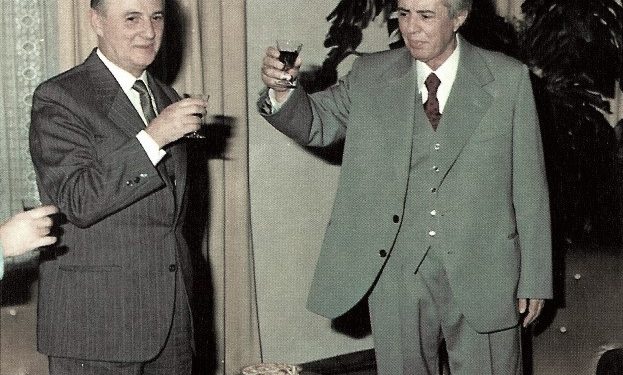
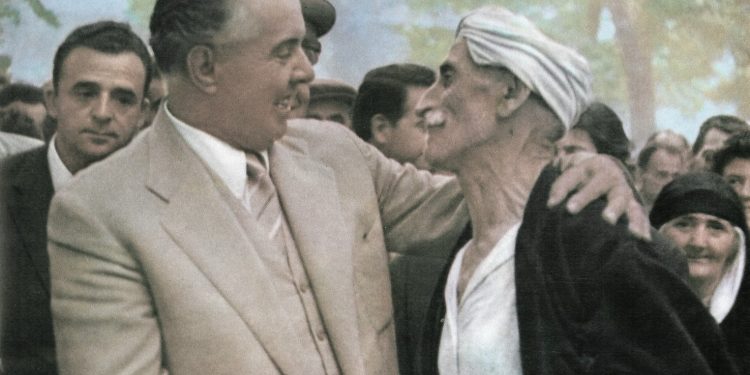
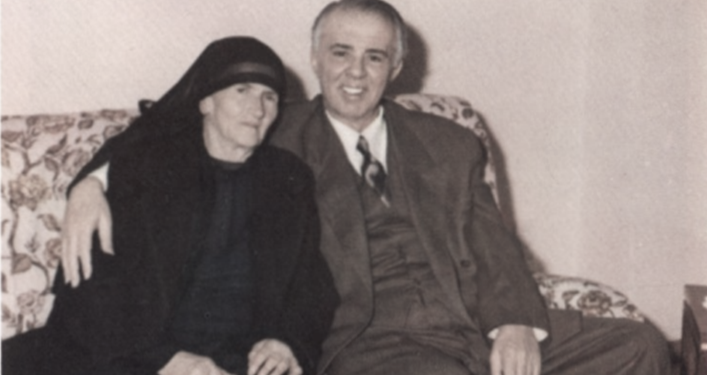

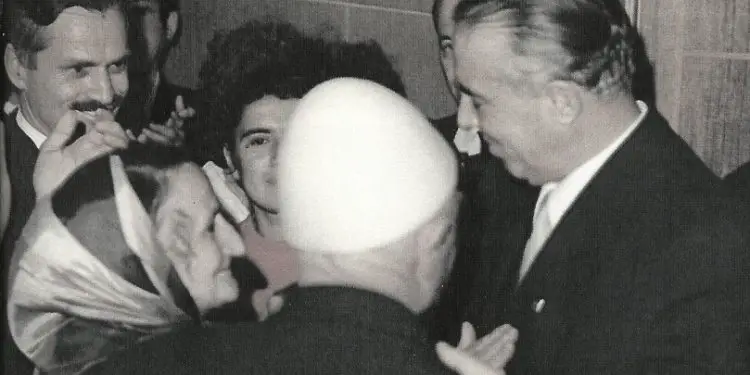
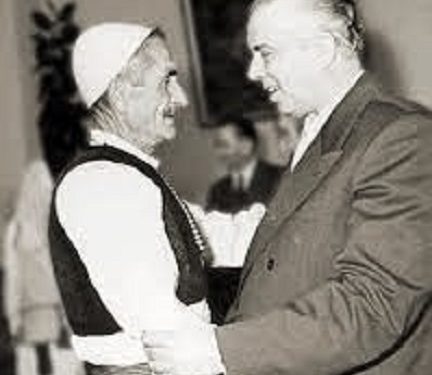
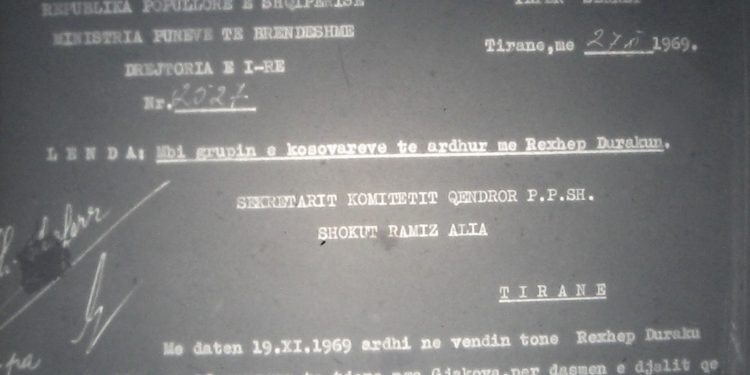
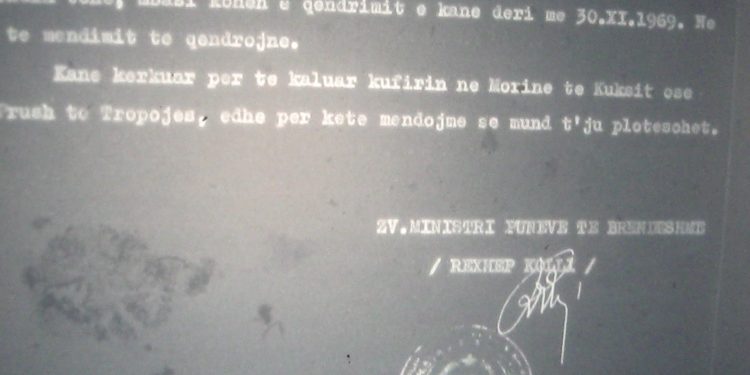
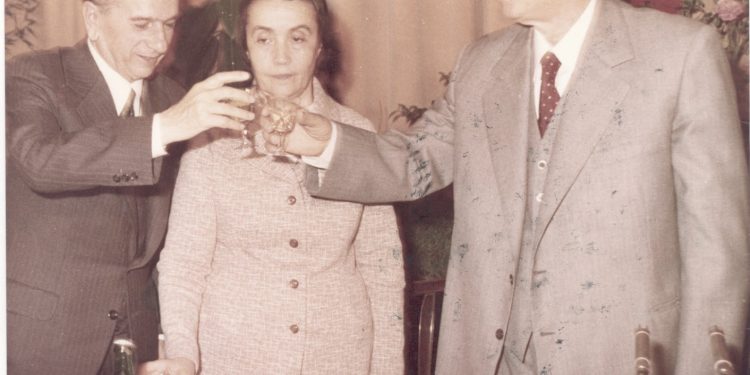
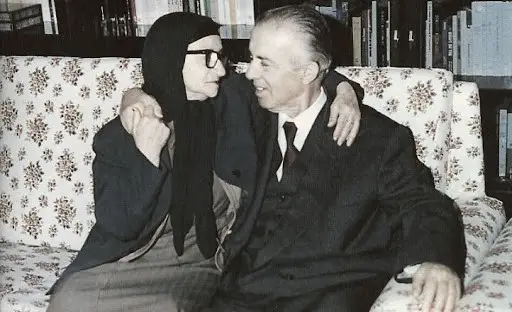
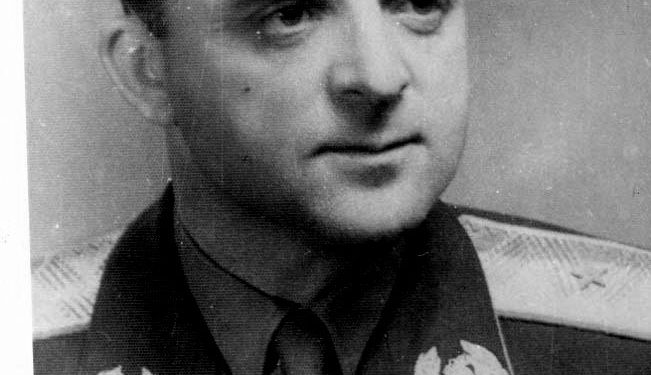

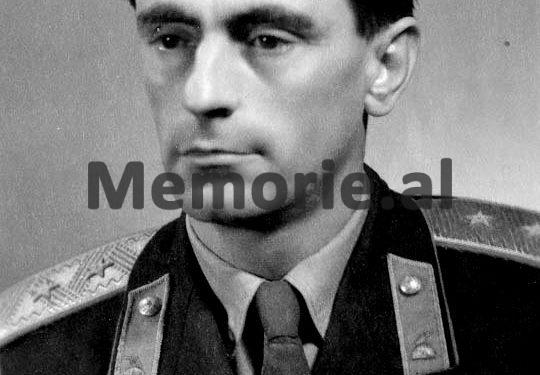
![“The ensemble, led by saxophonist M. Murthi, violinist M. Tare, [with] S. Reka on accordion and piano, [and] saxophonist S. Selmani, were…”/ The unknown history of the “Dajti” orchestra during the communist regime.](https://memorie.al/wp-content/uploads/2026/02/admin-ajax-3-350x250.jpg)
![“In an attempt to rescue one another, 10 workers were poisoned, but besides the brigadier, [another] 6 also died…”/ The secret document of June 11, 1979, is revealed, regarding the deaths of 6 employees at the Metallurgy Plant.](https://memorie.al/wp-content/uploads/2026/02/maxresdefault-350x250.jpg)




